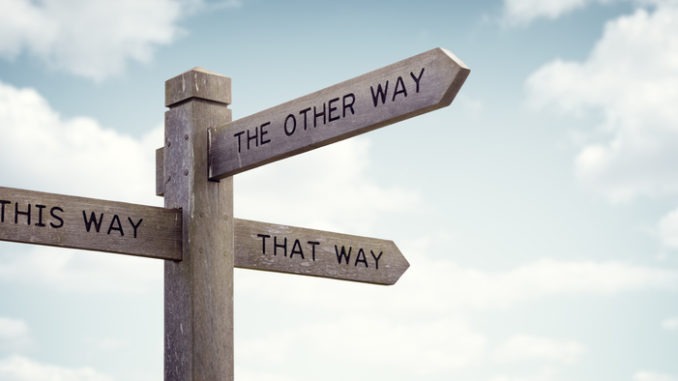
Life can often feel like a long string of decisions. What to wear, how to reply to an email, or even what book to read next. They all add up, and can become draining… Becky Wright discusses how to overcome decision fatigue
CREDIT: This is an edited version of an article that originally appeared on Happiful
I don’t know about you but, sometimes, I can’t face making another decision. It doesn’t even have to be anything significant – after a long day, just choosing a new Netflix series can feel like the hardest choice in the world.
Well, it turns out there’s a reason for this. Decisions actually can feel harder to make the more of them we have to make. In fact, according to a 2010 study in America, judges in court have been shown to make poorer quality decisions later in the day than they do in the morning. The fate of a defendant’s sentence might really depend on how many other cases the judge has had to deliberate over – and whether or not they’ve eaten lunch.
It’s something even supermarkets are wise to – that’s why you’ll usually find sweet snacks displayed prominently at the checkout. Yes, just when we’re depleted after making all those decisions throughout the aisles, we can be tempted easily with a snap decision to pick up a chocolate bar by the till.
No matter how rational you try to be, you can’t make decision after decision without paying a biological price. It’s different from ordinary, physical fatigue – you’re not consciously aware of being tired – but you’re low on mental energy. The more choices you make throughout the day, the harder each one becomes for your brain.
The thing is, we can’t expect to be good decision-makers simply by default – it comes from energy preservation, and we have to work at it. Here are some tips to help you establish habits that eliminate some of the mental effort of making choices.
Plan daily decisions in advance
If there are decisions you have to make each day that you can find overwhelming, try making them ahead of time. So, instead of agonising over your wardrobe every morning, plan your outfits for a few days in advance. This is the same reason Mark Zuckerberg wears a grey T-shirt and jeans every day – it’s one less complication in your day.
It’s about minimising the things you have to ponder over, to save your best decision-making for where it truly matters.
Make important decisions first
It might not always feel like it, but the morning is when your mind is at its most energised, so take advantage of that. Consider all your options carefully, then go with what your gut tells you. You’ll feel a sense of accomplishment that will set you up for the rest of the day.
Eat something
Of course, it’s not always possible to make decisions first thing in the day. One thing that can be avoided, though, is making decisions on an empty stomach – particularly if you have to make decisions later in the day.
Give your brain the fuel it needs to focus on the task at hand. Feeling energised and replenished will give you the mental strength you need to feel confident in your choices.
Make commitments instead of decisions
Do you find that you lack motivation when you’re making choices for yourself? Well, instead of deciding every day whether or not to go to the gym, why not set up a regular workout session with a friend? Looking forward to a plan – a commitment – you’ve made with someone else takes deliberation out of the equation.
Delegate if you need to
If you really can’t make a decision it’s okay to ask someone else. This could be as simple as asking your friend to pick the restaurant for dinner. Instead of getting caught in a spiral of ‘I don’t mind, what do you think?’, be direct. ‘I don’t know where we should go for food – could you pick somewhere for us? I’m happy to go with your choice.’
When done right, delegating can empower people and show them that you trust them.


Be the first to comment